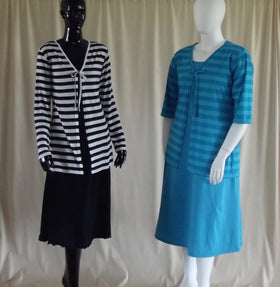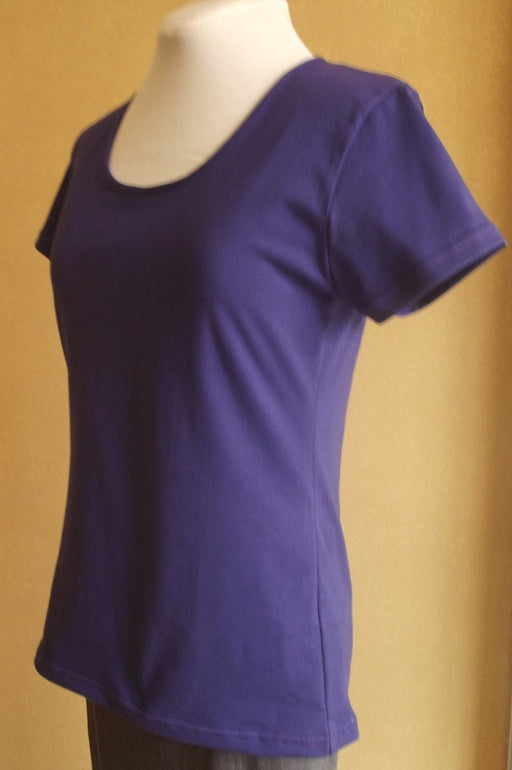
Buying local really doesn’t have to be more expensive or hard to do
Firstly, let me start by saying I have no objection to buying overseas products or garments. These have their purpose in our buying choices. It just makes common sense to at least look local or national first. There are many environmental & economic reasons to do this- fruit bought at your local farmer’s market is fresher, has travelled much less, (resulting in a much smaller carbon footprint) & supports the local economy.
It is often thought that buying local or handmade is a much more expensive option & time consuming. With a little conscious thinking, you will be surprised how easy your thinking can change. Here are some tips that hopefully will change your mind!
1.When shopping for products, simply check the labels to see if you have an opportunity to buy locally made. A few years back, we were buying a lounge suite at our local furniture store. The suite I loved the most was $150 dearer, which was not much more, considering we were buying a set of 2. The deal was sealed when I checked the label & to my surprise, the lounges were made on the Gold Coast, Australia- only 1 &1/2 hours up the road from me! Years later, these quality lounges still look brand new & I have a personal connection to the company that made them, being so close to home. There are 2 examples of buying local here- we chose to browse in the furniture store in our town first, before driving to the nearest chain store & the lounges we bought were manufactured locally. This process wasn’t time consuming (it took us 5 minutes to drive to the shop!) & I actually preferred the locally made furniture to the rest of the shop’s range.
2. Are you a business that is looking to hire a virtual assistant in the near future? Instead of hiring just anybody, why not make a conscious decision to hire somebody in your country or better still, your local area? Try searching local directories for VAs or use Upwork (formerly Elance & oDesk) & choose to work with somebody local, which in turn helps your local economy.
3.Surprisingly, many handmade products can be cheaper than those found in chain stores. Recently, I purchased several greeting cards from an Etsy store, PostLoveDesigns, based in Melbourne, Australia. The first card I bought was $4.80, with $1.80 postage. When I received this & was thrilled with the quality, I ordered a 3 pack of cards. This 3 pack was $12, with $1.80 postage. This meant that each card with postage included was $4.60- I can’t buy a Hallmark card for that price from a supermarket & we are talking about a locally handmade product! Buying handmade, direct from the maker can often (not always) be competitive.
4.Does your local store price match? My husband & I recently went shopping for a birthday present for our son. We had looked at the item in a large chain store & then saw our local store in our town. This shop advertises price matching, so we mentioned to them what we would like to purchase, how much the opposition was selling it for & what could they do for us? Within minutes, the same price was offered & we bought this present 5 minutes from our home, supporting our local store in the process.
5.Can you buy groceries that are made & packaged in your country? Often, these are slightly more expensive, but have a look at the label first- you may be surprised that these are only a few cents dearer. If possible for your budget, why not try adding a few locally made products to your shopping trolley. In Australia, 70% of groceries found in Aldi stores are made in Australia. Now sure, Aldi is not an Australian company, but surely buying a bottle of Australian made jam is still better than buying one made in Thailand. This supports the Australian farmer growing the produce, the Australian factory worker that bottle this jam & exudes much less carbon emissions shipping it to the stores.
6.This final tip is the most obvious one- buy from your local farmer’s market. The produce is much fresher & you are supporting the farmer who grows it directly. Sometimes, the produce is more expensive which can be restrictive for some, but have a look before deciding this is true. The coffee I buy at the market is actually cheaper than what I can buy at the supermarket & is grown literally just down the road from me!
I hope this starts to make you aware of your own shopping habits & maybe some changes you could make. I would love you to leave any comments below on how you shop locally/nationally........

Featured collection
Women's Cotton Singlet
Discover 19 shades & sizes 8-26 in our best seller of all our tops, our women's cotton singlet! It is super flattering for every figure with sl...
View full detailsWomen's Sleeveless Cotton Tunic
Be ready for any occasion with this stylish, long women's sleeveless cotton tunic. It's made with soft, breathable cotton, deep side splits for eas...
View full detailsWomen's T-shirt
Firstly, choose from 19 stunning colours and sizes 8-26! Our slightly-shaped-at-the-waist women's t-shirts will definitely flatter every shape &...
View full detailsSummer Top Bundle
You will stay fresh all summer long in our Summer Top Bundle, that's for sure! This value bundle features a comfy singlet and t-shirt in 19 amazing...
View full detailsWomen's Short Sleeve Cotton Tunic
Get into the perfect look with this chic long style, women's short sleeve cotton tunic! With breathable cotton, deep side splits, and 19 dazzling ...
View full details













Leave a comment